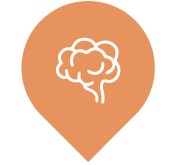Global Criminal Justice in the Hague: Forensic Science
Key Information
Information
Application Deadline: 20/10/25 at 9:00 am
Opportunity type: Academic-led trips
Faculty: Health and Life Sciences
Ref: 10009767
Dates
Departure Date: 03/02/26
Return Date: 06/02/26
Student cost
£203: This is your estimated cost for travel and accommodation after deducting the £200 DMU Global bursary. It also includes a £3 carbon levy to help offset emissions from your flight.
What’s not included: UK and in-country transfers, activities, visits, food, drink, and visa (if applicable).
Booking
Accommodation: Shared rooms in a hotel or hostel booked by DMU
Travel: Travel booked by DMU (students travel as a group)
Contact
General Enquiries: Global Mobility Office - dmuglobal@dmu.ac.uk
Trip Lead: Chloe Swinfield - chloe.swinfield@dmu.ac.uk
How to pay
Payment details: If offered a place, students will receive further information and will be asked to pay the student cost listed above. As mentioned, the DMU Global bursary has already been deducted from this.
Your application
Important: The use of generative AI tools such as ChatGPT, Gemini, Copilot and others to write or generate content for your application is not permitted. DMU Global reserves the right to reject applications that have been created using these tools. To learn more, visit our application process page.
Trip Profile
Independence
Independence
Trip price
Trip price
Trip duration
Trip duration
Eligibility
Second year Forensic Science students are eligible to apply for this opportunity. There is a maximum of 30 places available, with a minimum of 15 participants required for this opportunity to take place. Students are recommended to check the eligibility criteria before applying.
About
The Hague is known as the home of international law. With this in mind, it is the perfect location to learn about and observe international criminal justice. Planned visits will include trips to the International Criminal Court, The Organisation for the Prohibition of Chemical Weapons and the International Commission for Missing Persons. Optional cultural trips include the Peace Palace (home to the U.N.’s International Court of Justice), the Mauritshuis Museum (home to the best of Dutch painting from the age of Rembrandt and Vermeer) and the Prison Gate Museum (an ancient prison home to torture, trail and punishment).
Sitting on the west coast of the Netherlands, on the North Sea, The Hague is home to thriving bars and restaurants, many located around three main squares. Take time to explore the city’s architecture, culture and nightlife in your free time as part of this trip for Forensic Science students.
Building on the Essentials of Forensic Investigation module and supporting Issues in Criminal justice and then DNA Profiling and Presentation of Evidence in final year, this trip is all about how to approach evidence and then ultimately present it in court. Whether that be framing casework in the UK or learning about how crime is approached internationally, this trip has lots to inspire forensic scientists of the future.
The estimated total cost for the Eurostar and accommodation for this trip to The Hague is £400. Students will be expected to pay £200, as the £200 DMU Global bursary will be deducted from the total.
Learning objectives
Participating in a DMU Global opportunity can help you develop a range of employability skills and competencies that enhance your studies. The learning objectives for this trip to the Hague are:
Skill development
This opportunity has been designed to help develop the following DMU Graduate Attributes:

Agility

Confidence

Critical Thinking

Organisational
Cultural activities
Whilst visiting The Hague students will be able to engage in a range of cultural activities that are relevant to their studies. This includes a trip to the Escher Museum, which all about perspective and optical illusions, which correlates with the importance of forensic scientists not to show cognitive bias.
There will also be the chance to visit The Peace Palace, which houses the International Court of Justice (which is the principal judicial body of the United Nations), the Permanent Court of Arbitration (PCA), The Hague Academy of International Law and the Peace Palace Library. Lastly, a visit to the Prison Gate Museum, one of the oldest former prisons in the Netherlands will be offered.
Visa information
Due to various external factors and an unprecedented demand for international travel, there are significant delays in visa processing, as well as very limited availability of application appointment slots for some countries and embassies.
We recommend that you take all appropriate steps to secure a visa as soon as practically possible, and to notify DMU Global if you face any issues. It is your responsibility to meet the entry requirements of the country you are travelling to. Failing to do so may mean that you’re liable for the costs incurred to the university (including repayment of the DMU Global bursary). Visit our visa information page to learn more.